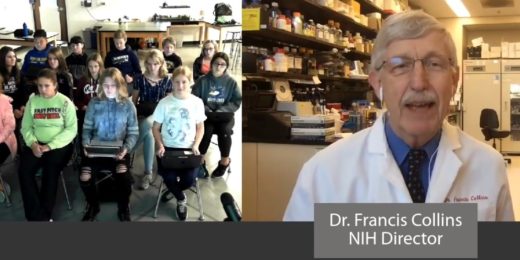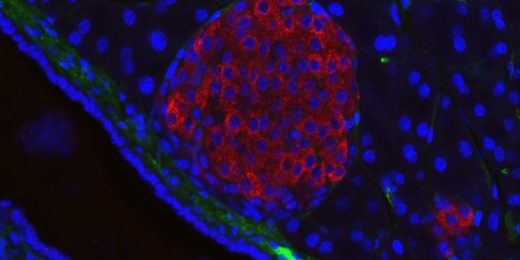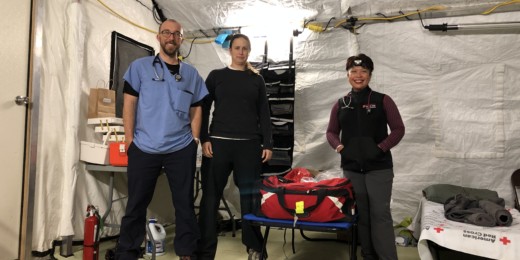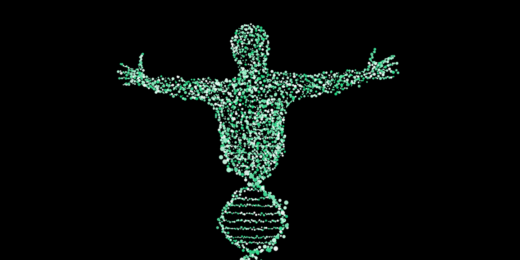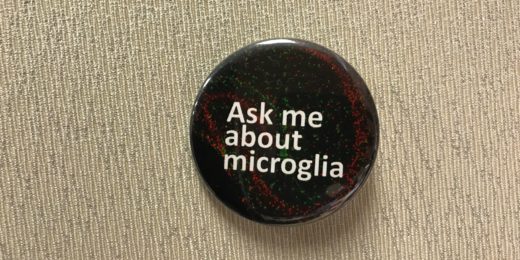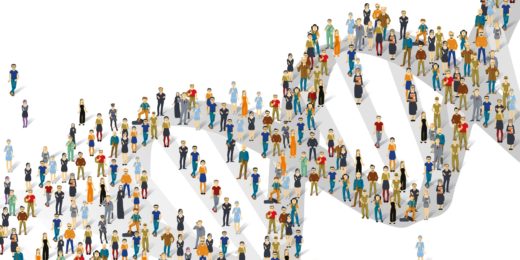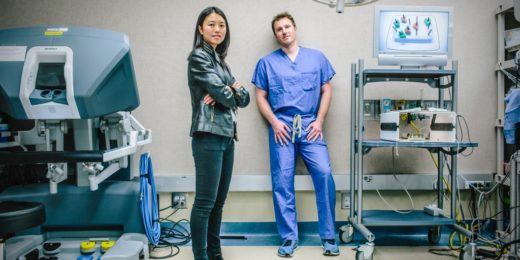The cost of treating animal-related injuries in U.S. emergency rooms is about $1.2 billion per year, a new Stanford study shows.
Month: December 2018
NIH Director talks science, STEM careers with preteens
During a recent Facebook Live event, Francis Collins answers middle school students' questions about science and STEM careers.
Zinc chelation may be able to deliver drug to insulin-producing cells
By delivering a drug directly to beta cells, researchers may be able to spur insulin production and potentially develop a diabetes therapy in the future.
Improving PTSD care through genetics
Although sparked by trauma, PTSD has a genetic component as well, which can influence what therapy is most successful and provide other insights.
Providing aid to those humans – and animals – affected by the California fires
Stanford health care providers and vet technicians volunteered to help humans and animals affected by the most destructive fire in California’s history.
A 14-year-old explains what it’s like to get a new heart
Fourteen-year-old Athena Tran celebrated an important personal milestone this week: It's been one year since she received a heart transplant.
Study shows that having genetic information can affect how the body responds
New Stanford research found that knowing your genetic make-up can affect how your body responds and potentially affect your risk for certain conditions.
The heartbeat seat: Demoing new well-being technologies in a car
As part of a writer's reporting for a magazine story, she tested out new technology that's meant to keep drivers more relaxed.
NIH should fund the edgy science that may fail — or lead to the next great discovery, researchers say
A new analysis found that the National Institutes of Health is funding more conservative research projects, which does not promote great new discoveries, the authors argue.
May I have this dance? Nuclear chaperones guide transcription factors to DNA
Proteins that guide transcription factors from the nuclear membrane to the DNA cause drug-resistant skin cancers and are new targets for drug development.
Could I really be the only one struggling? A graduate student opens up about mental health
Stanford graduate student Francis Aguisanda shares his struggles with mental illness in this piece, which he wrote to let others know they are not alone.
New hope for treating “chemo brain,” with a side of the joy of science
A decades-long scientific collaboration points the way to therapies for "chemo brain," the cognitive impairment that follows cancer treatment.
New algorithm could accelerate diagnosis of genetic diseases using clinical records
Stanford researchers led by Gill Bejerano have developed an algorithm that can rapidly inform diagnoses using clinical records.
Algorithm developed to evaluate surgical skills with help from recent high school grad
Using AI, a team of Stanford researchers including an 18-year-old has developed a way to track and evaluate surgical skills.
Learning from those who are no longer living
Medical and PA students have spent the fall using cadavers to study the human body. And as this student points out, they've learned a lot more than anatomy.
More data, more problems: Selecting fewer measurements could improve health-risk assessments
A Stanford study highlights a data optimization method for health-risk assessments to lower costs and and improve diagnostic power.



